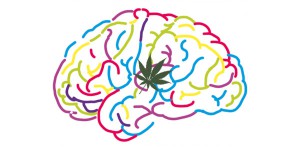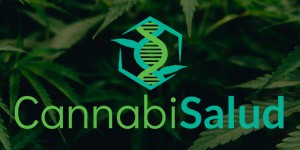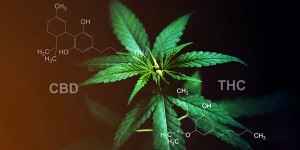By Kenzi Riboulet-Zemouli

Based in Barcelona, Kenzi is a French-Algerian interdisciplinary researcher, advocate for sustainable drug policies. Founding member of the think-tank FAAAT and the NGOs NORML France, IMCPC & CATNPUD. Focused on Action-research as a catalyzer for legal and social changes, Kenzi is particularly involved in studying alternative pathways for cannabis policy reforms, linking international law with local grassroot initiatives. He anchors his work on the ethics, human rights aspects, fair trade components, and criteria of sustainability of legally-regulated use, production and marketing of controlled plants, products or substances.
"It's easier to fool people than to convince them that they have been fooled"
-Mark Twain.
Vienna (Austria) – December 2nd, 2020.
Today, the United Nations voted on a taboo topic. On the ballot: modest updates of international medical cannabis law proposed by the World Health Organization (WHO).
Based on thorough 2-year assessments by an independent scientific committee, WHO's recommendations were unprecedented since the Single Convention on narcotic drugs passed in 1961.
One of WHO's recommendations focused on the CBD medicinal products & pharmaceuticals, such as Epidiolex®, CannEpil®, and other similar almost-pure CBD medications. CBD per se is not listed in the Schedules of the Drug Control Conventions. But THC is.
Because CBD medications are found to contain up to 0.2% of residual THC when derived from the Cannabis plant, some countries consider that they should be regulated as if listed in the Schedules.
The recommendation of WHO only proposed that CBD medications with trace-amounts (less than 0.2%) of THC be exempt from Drug Control just like pure CBD already is. The WHO did not address so-called "hemp CBD products" used for non-medical purposes(1) in its recommendations, only medical CBD products like Epidiolex®.
Nevertheless, governments who reject the input of science, with Russia, Nigeria, China and Cuba at the forefront, have hijacked the discussion, and created a smokescreen: bringing non-medical "hemp" CBD into the discussion –even though entirely off topic! These countries propagated the belief that the CBD recommendation is a referendum on CBD, leveraging (geo)politics against science.
Earlier in 2020, the USA delegate reckoned that the CBD discussion had be turned into a "primary area of misunderstanding or perhaps confusion"(2) and the representative of Colombia criticized those countries that "referred to commercial products in general." He left it clear: "We are talking about medication after all [...] we're not talking about recreational use products, we're not talking about food products, or foodstuff, or products that are freely available, rather, we strictly abide by the terms used within the drug control conventions, and we refer to 'products for medical and scientific purposes'.(3)
Today, the CBD recommendation has been rejected. However, the outcome of the vote will have no impact on the legal status of CBD which will remain exactly the same as it was in previous years.(4)
Today's vote will in no way impact or affect the "hemp" and non-medical CBD industries.
However the misunderstandings and false narrative created could have a devastating symbolic impact on the hemp sector. Stakeholders must understand that: before the vote, industrial/non-medical CBD was not Scheduled, not under drug control, and now, after the vote, industrial/non-medical CBD remains not Scheduled, and remains outside of international drug control.
References
(1) on-psychoactive phytocannabinoids, as long as they are not used as medications, are expressly exempt from the drug control Conventions (1961 Single Convention Article 2(9) and 28). See: http://bit.ly/HempAndTheTreaties
(2) First statement delivered by Virginia Patton Prugh, representative of the United States of America, at the topical meeting of 26 June 2020 afternoon, United Nations, 63rd Commission on Narcotic Drugs (classified minutes).
(3) Statement delivered by Oscar Iván Echeverry Vásquez, representative of Colombia, at the topical meeting of 26 June 2020 afternoon, United Nations, 63rd Commission on Narcotic Drugs (classified minutes).
(4) The impact of accepting the CBD recommendation would have been that Epidiolex® and other similar medications be exempt from international drug control; it would not have affected the "hemp" sector and CBD products not used for medical purposes.
Read the full article below
On 2 December 2020, the United Nations (UN) corrected the record by acknowledging therapeutic applications to derivatives of the Cannabis sativa plant. During 2020, the UN had been under global scrutiny for that reason, as governments debated all year the changes in the scheduling of cannabis under the international drug control Conventions. In addition to the recognition of therapeutic usefulness, the UN had to decide on a more detailed, and somehow taboo, set of recommendations made by the World Health Organization (WHO) to provide for lowered levels of control over pharmaceutical and phytopharmaceutical cannabis preparations, for their use in medicine. One of the WHO's proposals, rejected by the UN, was related to CBD medicines. However, in the context of an unrelated but complex and ever-evolving policy landscape for non-medical CBD products like food and cosmetics, WHO's medical CBD recommendation have been misinterpreted and misunderstood.
This article explains why the vote has not changed anything for pharmaceutical CBD products, and why, even if it had been adopted, it would not have affected the industrial "hemp" CBD sector.
A. The Expert Committee on Drug Dependence (ECDD), an independent scientific committee convened by WHO, was tasked in 2016 with assessing a series of cannabis products and compounds. The thorough scientific reviews were an historical first. The assessments made by the WHO's ECDD are communicated to all governments in a letter from the WHO Director-General. The ECDD is the only body with the mandate to recommend placing or withdrawing certain products and substances in the lists of the drug control Conventions. One of the major flaws of the drug control treaties is that, in order to enter into force, ECDD's recommendations –the emanation of a global scientific consensus– need to be validated by a vote of governments, precisely at the UN's Commission on Narcotic Drugs (CND) headquartered in Vienna, Austria –rather an emanation of global politics.
Part of the working agenda of the ECDD included "cannabidiol", a molecule not listed in the Schedules of the drug control Conventions. The Experts actually started their assessments with CBD, earlier than other cannabis products and molecules. That led the Experts to issue an opinion on the pure CBD molecule in June 2018, earlier than the other cannabis recommendations. They found:
"CBD is one of the naturally occurring cannabinoids found in cannabis plants. There are no case reports of abuse or dependence relating to the use of pure CBD. No public health problems have been associated with CBD use.
CBD has been found to be generally well tolerated and to have a good safety profile. Adverse effects of CBD use include loss of appetite, diarrhoea and fatigue.
Therapeutic applications of CBD are being researched for a variety of clinical uses. Research in this area is most advanced in the treatment of epilepsy. [...]
CBD is not specifically listed in the schedules of the 1961, 1971 or 1988 United Nations International Drug Control Conventions. However, if prepared as an extract or tincture, it is controlled under Schedule I of the 1961 Single Convention on Narcotic Drugs.
There is no evidence that CBD as a substance is liable to similar abuse or leads to similar ill-effects to substances controlled under the 1961 or 1971 Conventions such as cannabis or Δ9-THC, respectively.
The Committee recommended that preparations considered to be pure CBD should not be scheduled."1
They therefore recommended leaving CBD where it has always been: outside of the schedules. It was not the first time: in 1970, the ECDD refused to recommend scheduling CBD as a "Psychotropic Substance"2 (under a different treaty, the 1971 Convention). At that time, they suggested CBD may be considered as a "precursor" of THC, but did not present any characteristic granting its inclusion in the Schedules as a controlled drug.
The recommendations "not to schedule" a drug do not lead to a vote by the United Nations: only proactive recommendations to include a substance in the Schedules (or to change the scheduling of a substance already included) can be approved or rejected by governments. A refusal of WHO to recommend a substance for scheduling cannot be bypassed, and the substance listed without a WHO recommendation for it. Therefore, CBD was and continues to be outside of the Schedules.
B. Even after WHO refused to recommend CBD for scheduling –twice–, some governments (Europeans will feel concerned) deemed that CBD should not be regarded merely as "CBD", but as a derivative of cannabis, which, on its turn, is listed in the Schedules. Also, CBD per se is not listed in the Schedules of the Drug Control Conventions... but THC is. Because CBD medications are found to contain up to 0.2% of residual THC when derived from the Cannabis plant, some countries consider that they should be regulated as if listed in the Schedules and therefore be considered under international control3.
At the ECDD meeting that followed, in November 2018, the Experts had to take this interpretation into account –the fact that some countries, by considering CBD a cannabis derivative, would manage to bypass WHO's recommendation that CBD should not be under control. The acknowledged the following:
"Cannabidiol can be chemically synthesized or it can be prepared from the cannabis plant. The approved medication (Epidiolex) is a preparation of the cannabis plant. The Committee noted that medicines without psychoactive effects that are produced as preparations of the cannabis plant will contain trace amounts of delta-9-tetrahydrocannabinol (Δ9-THC; dronabinol). The cannabidiol preparation approved for the treatment of childhood-onset epilepsy, Epidiolex, contains not more than 0.15% Δ9-THC by weight and has no effects indicative of potential for abuse or dependence. In keeping with the recommendation that preparations considered pure cannabidiol not be controlled and recognising that trace levels of Δ9-THC may be found in such preparations, such as the concentration of 0.15% in Epidiolex, while acknowledging that chemical analysis of Δ9-THC to an accuracy of 0.15% may be difficult for some Member States"
And therefore made yet another recommendation on CBD, this time subject to a vote, the recommendation:
"To give effect to the [prior] recommendation of the Expert Committee on Drug Dependence at its fortieth meeting that preparations considered to be pure cannabidiol (CBD) should not be scheduled within the international drug control conventions, by adding a footnote to the entry for cannabis and cannabis resin in Schedule I of the 1961 Convention to read "Preparations containing predominantly cannabidiol and not more than 0.2 per cent of delta-9-tetrahydrocannabinol are not under international control."4
More than exempting CBD –which does not need to be exempt, since it is not scheduled– the recommendation allows to exempt the residual THC that is found in CBD medicines, to actually give effect to the non-inclusion of CBD products, even with a trace-amount of scheduled substance in it.
However, as many countries pointed out, the proposal was not formally well phrased, and could underlie further complexities, if implemented. As U.S. officials stated, "adding a footnote" is not the appropriate vehicle to give effect to the non-inclusion of CBD. The U.S. reaffirmed on various occasions their views that CBD is not listed in the Schedules, and that ""(US quote first page). However, they voted against the recommendation, because of the formal and technical objections explained above. To minor the perceived negative impact that their vote might have had on CBD medicines, the U.S are preparing to launch an initiative (although it might be reconsidered when the Biden administration takes office) to get the CND to pass a resolution in a near future, seen as a "better vehicle" to reaffirm the exemption of CBD medicines from treaty control.
C. The hemp smokescreen (Dec. 2020)
So: CBD is not listed in the Schedules, but THC is, and trace-amounts of THC in CBD medications can justify (for some countries) to place them under control. Fine.
An important point, however, is that non-medical "hemp" CBD is entirely off-topic! The CBD recommendation of WHO was not a referendum on CBD generally.
Earlier in 2020, the USA delegate reckoned that the CBD discussion had been turned into a "primary area of misunderstanding or perhaps confusion"5 and the representative of Colombia criticized those countries that "referred to commercial products in general." He left it clear: "We are talking about medication after all [...] we're not talking about food products, or foodstuff, or products that are freely available, rather, we strictly abide by the terms used within the drug control conventions, and we refer to 'products for medical and scientific purposes"6
The WHO recommendation therefore, as it's visible in the text which only mentions medications such as Epidiolex®, and other similar almost-pure CBD medications, has no direct relation with industrial hemp-derived CBD products. Non-medical CBD products (in the Convention, "industrial purposes" is equivalent to "other than medical and scientific purposes" according to the Commentary7,8,9). Therefore, positive or negative, the vote on the WHO recommendation was not expected to have any incidence on the hemp sector10, contrary to the recent ruling of the European Court of Justice on the "Kanavape case" which, on its turn, has had no particular incidence on the "strictly controlled trade for use for medical and scientific purposes."11
The legal and regulatory context surrounding CBD was already complex before. It continues to be complex today, but we now know for sure that: (1) pure CBD is not scheduled as a narcotic drugs, (2) CBD medicines can eventually be considered to be controlled medicines, and (3) non-medical CBD is not under control, at least in the European Union and in countries like the USA or Colombia which acknowledge and reaffirm the exemption of cannabidiol-containing products that are not used in the medical and clinical research sectors.
References
(1) See page 17 in: WHO Expert Committee on Drug Dependence Fortieth report: https://apps.who.int/iris/bitstream/handle/10665/279948/9789241210225-eng.pdf See also the Letter of WHO Director-General from July 2018, containing the recommendations of the 40th ECDD meeting: https://www.who.int/medicines/access/controlled-substances/UNSG_SignedDGletter.pdf?ua=1
(2) See page 39 in: Crimson Digest (volume 1)
(3) Under such an interpretation, CBD products can be regarded as "extracts of cannabis", as "cannabis resin" or as "preparations of cannabis and cannabis resin", all listed in Schedule I of the 1961 Single Convention.
(4) Letter of WHO Director-General from January 2019, containing the recommendations of the 41st ECDD meeting: https://www.who.int/medicines/access/controlled-substances/UNSG_letter_ECDD41_recommendations_cannabis_24Jan19.pdf?ua=1
(5) First statement delivered by Virginia Patton Prugh, representative of the United States of America, at the topical meeting of 26 June 2020 afternoon, United Nations, 63rd Commission on Narcotic Drugs (classified minutes).
(6) Statement delivered by Oscar Iván Echeverry Vásquez, representative of Colombia, at the topical meeting of 26 June 2020 afternoon, United Nations, 63rd Commission on Narcotic Drugs (classified minutes).
(7) See the official Commentary on the 1961 Single Convention
(8) Non-psychoactive phytocannabinoids, as long as they are not used as medications, are expressly exempt from the drug control Conventions (1961 Single Convention Article 2(9) and 28). See: http://bit.ly/HempAndTheTreaties
(9) See also: https://www.researchgate.net/publication/343768923_CBD_as_a_'narcotic'_Food_for_thought
(10) The impact of accepting the CBD recommendation would have been that Epidiolex® and other similar medications be exempt from international drug control; it would not have affected the "hemp" sector and CBD products not used for medical purposes.
(11) See paragraph 59 in the Judgment of the ECJ's Fourth Chamber in Case C-663/18, from 19 November 2020
Table 1 – Comparing outcomes of the votes on WHO'S CBD recommendation
| SCHEDULING OF CBD PRODUCTS BEFORE THE VOTE | SCHEDULING OF CBD PRODUCTS AFTER THE VOTE | SCHEDULING OF CBD PRODUCTS IF WHO RECOMMENDATION HAD BEEN ACCEPTED | |
|---|---|---|---|
CBD product for use as a medication Epidiolex®, CannEpil®, etc. |
Controlled Scheduled for their trace-amount of THC |
Controlled Scheduled for their trace-amount of THC |
Exempt Footnote exempting from international drug control when less than 0.2% THC |
CBD product for any non-medical use Foodstuff, wellness products, cosmetics, etc. |
Exempt Not scheduled. Not under international drug control. |
Exempt Not scheduled. Not under international drug control. |
Exempt Not scheduled. Not under international drug control. |
Table 2 – Impact of the recommendations if it had been adopted
| Favours ‘synthetic’ over ‘plant-based’ CBD products | NO |
| Favours 'plant-based' over 'synthetic' CBD products | NO |
| Places 'synthetic' and 'natural' CBD products at the same level | YES |
| Concerns CBD in food, foodstuff, food complements, animal feed | NO |
| Concerns wellness products containing CBD | NO |
| Concerns CBD products used as cosmetics | NO |
| Concerns products containing CBD used as a treatment or for research | YES |
| Decreases access and availability for medical patients | NO |
| Increases access and availability for medical patients | YES |
| Obliges governments to undertake changes nationally | NO |
| Is international only, of optional enforcement nationally | YES |


